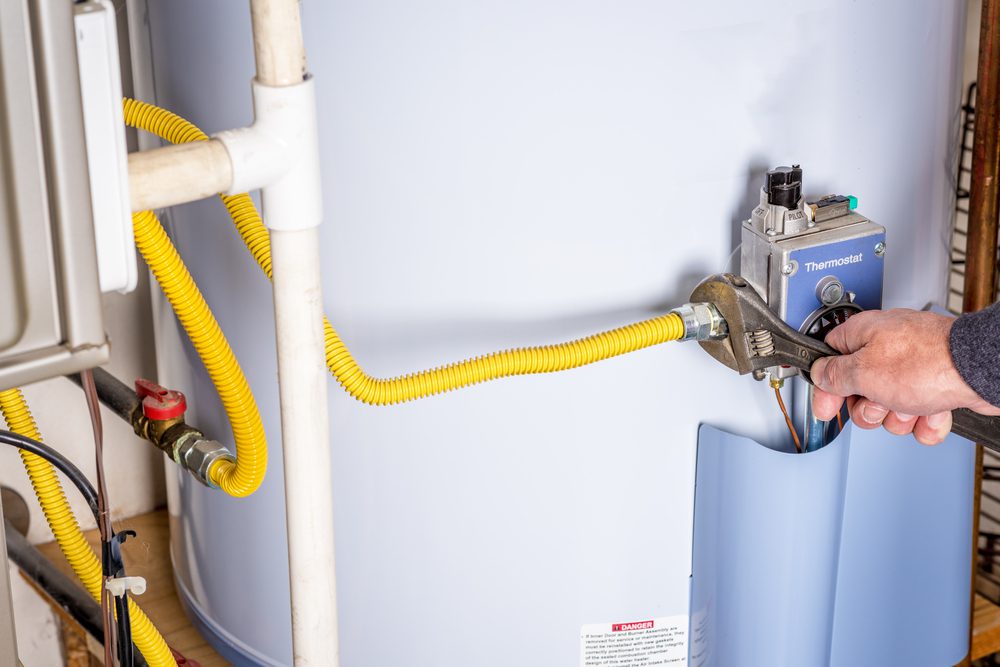Handling Everyday Water Heater Malfunctions
Handling Everyday Water Heater Malfunctions
Blog Article
This great article listed below about Water Heater Repair and Troubleshooting is absolutely stimulating. Check it out yourself and decide what you think of it.

Imagine beginning your day without your routine warm shower. That currently establishes a poor tone for the rest of your day.
Every home needs a reputable water heater, but just a few recognize just how to manage one. One easy way to keep your water heater in top form is to check for faults consistently and also repair them as soon as they appear.
Bear in mind to switch off your hot water heater before sniffing about for mistakes. These are the water heater faults you are more than likely to encounter.
Water too hot or too cold
Every water heater has a thermostat that establishes exactly how warm the water obtains. If the water coming into your home is also warm in spite of establishing a convenient maximum temperature level, your thermostat might be defective.
On the other hand, as well cold water might result from a fallen short thermostat, a busted circuit, or inappropriate gas circulation. For example, if you use a gas water heater with a broken pilot burner, you would obtain cold water, even if the thermostat is in ideal problem. For electrical heating units, a blown fuse may be the culprit.
Not enough warm water
Water heaters come in several sizes, depending on your warm water demands. If you lack hot water prior to everybody has had a bathroom, your hot water heater is too tiny for your family size. You must think about mounting a larger water heater container or choosing a tankless hot water heater, which occupies less area and also is more resilient.
Odd sounds
There go to least five type of sounds you can learn through a water heater, but the most typical analysis is that it's time for the hot water heater to retire.
Firstly, you need to recognize with the typical seems a water heater makes. An electrical heater might seem various from a gas-powered one.
Popping or banging sounds usually suggest there is a piece of sediment in your containers, and also it's time to cleanse it out. On the other hand, whistling or hissing sounds may merely be your valves letting some stress off.
Water leakages
Leaks can originate from pipelines, water links, valves, or in the worst-case circumstance, the storage tank itself. In time, water will certainly corrode the tank, and discover its way out. If this occurs, you require to change your water heater immediately.
However, prior to your change your entire tank, be sure that all pipes are in place and that each shutoff works flawlessly. If you still need assistance determining a leakage, call your plumber.
Rust-colored water
Rust-colored water suggests among your hot water heater components is corroded. It could be the anode rod, or the tank itself. Your plumber will certainly have the ability to recognize which it is.
Warm water
Despite just how high you established the thermostat, you won't obtain any kind of hot water out of a heater well past its prime. A hot water heater's performance might decrease with time.
You will certainly likewise obtain lukewarm water if your pipes have a cross connection. This indicates that when you switch on a faucet, hot water from the heating unit flows in together with normal, cold water. A cross link is easy to area. If your hot water faucets still follow closing the hot water heater valves, you have a cross link.
Discoloured Water
Corrosion is a major reason for dirty or discoloured water. Rust within the water container or a falling short anode pole could cause this discolouration. The anode pole secures the storage tank from rusting on the within as well as should be examined yearly. Without a pole or an effectively operating anode pole, the hot water swiftly corrodes inside the storage tank. Call a specialist water heater service technician to identify if replacing the anode rod will repair the issue; otherwise, replace your water heater.
Conclusion
Ideally, your water heater can last 10 years before you need an adjustment. Nonetheless, after the 10-year mark, you might experience any one of these faults a lot more regularly. Now, you must add a brand-new water heater to your budget plan.
How To Troubleshoot 3 Common Water Heater Problems in Twin Cities
The Water Heater Is Leaking
A leaky cold water inlet valve A loose pipe fitting A leaky temperature and pressure relief valve A corroded anode rod A cracked tank Turn Off Your Water Heater:
Shut off your gas water heater by turning the gas valve on the unit to the “OFF” position. Shut off your electric water by switching its power off at your electrical panel. Look for a two-pole breaker labeled “water heater” and turn it to the “OFF” position. Move the ball valve connected to the water heater to be perpendicular to the piping at a 90° angle. Look for the Leak:
Depending on whether the water is coming from the tank's top or bottom, you’ll want to look for the leak in different locations.
If the leak comes from the top of the tank, carefully look for water escaping from the cold water inlet valve or loose pipe fittings. Rusted hot and cold water valves can have loose connections with the tank, with water leaking out of them.
https://mspplumbingheatingair.com/blog/how-to-troubleshoot-3-common-water-heater-problems
We were shown that editorial about Common Problems with Tank Water Heaters through someone on our other web address. Enjoyed our posting? Please share it. Help others check it out. Thank-you for taking the time to read it.
Solve it now, dial here! Report this page